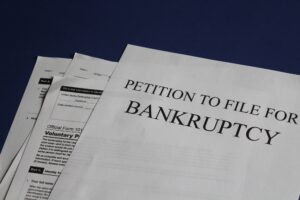
If the firm is heading toward insolvency, consider discussing alternatives to bankruptcy with your outside counsel. These include:
- Corporate dissolution
- Out of court restructuring
- A merger/acquisition
- Liquidation
- Recapitalization
- Assignment of benefits
When bankruptcy is the only option, consider if a chapter 11, which would allow the company to continue and keep many of the employees under court supervision, will work or if a chapter 7, which would close the doors, is more appropriate. It is essential to plan for insolvency sooner than later. The reason is that you will need to hire advisors to take you thru the process, and they will want to be prepaid before starting work. Always hire an experienced bankruptcy attorney who can advise you about your responsibilities and fiduciary duties. They should advise you about a derivative suit against the board by creditors, actions by the bankruptcy trustees against the board, or how to restructure and keep the company going.
Directors and officers must document meeting minutes and other items the board discusses in person or on conference calls. This could be the difference between litigation or not by creditors, shareholders, or government regulators. Another protection is the director’s and officers’ liability insurance policy, often called D&O insurance.
This insurance must be taken out before the company’s difficulties. What it would not cover is unpaid wages and taxes due to the federal WARN Act (Worker Adjustment and Retraining Notification) and similar state versions. Therefore, directors should make sure that payroll taxes are being paid by the company. This act, among other things, requires boards and employers to provide companies with 100 or more employees with 60-day notice of a large layoff. There are other sources of potential liability for directors and officers from the Department of Labor.
Serving on a corporate board is prestigious and can be lucrative, but you have a fiduciary responsibility not to turn a blind eye to problems you see. Make sure management problems are noted in the minutes of board meetings, keep a keen eye on the business financials, including the CPA notes at the end of the financial statements, and make sure the D&O insurance and the taxes are being paid. With this you are in a position to do the job correctly and avoid personal liability.
